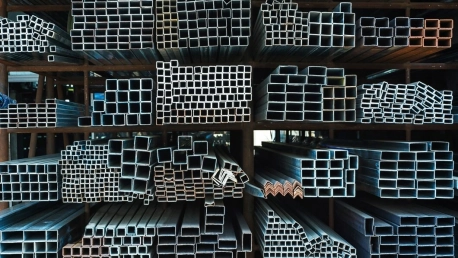The United States government under the leadership of President Joe Biden has been proactive in clarifying its trade policy intentions, especially concerning China. In an effort to counter potential misunderstandings, the administration has clarified that its strategy is not tantamount to initiating a trade war with the Asian economic powerhouse. Despite the proposition of significant tariff increases on Chinese imports, particularly steel and aluminum, the White House has conveyed that these measures aim primarily to protect national industry and the economic well-being of the country.The Biden administration emphasizes that these tariffs are about ensuring America’s industries remain competitive and not about escalating geopolitical tensions. The proposed tariffs are a part of a comprehensive strategy to address issues that affect domestic production and its ability to compete on a global scale. The administration has been walking a fine line, attempting to balance the necessity of protecting domestic economic interests with maintaining a stable and constructive relationship with China. By making its intentions clear, the U.S. hopes to avoid any unnecessary escalation and assure both domestic and international observers that the moves are purely in the interest of American economic security.
Reviewing China’s Trade Practices
Tariffs on Steel and Aluminum Imports
To counter China’s alleged underpricing tactics, which harm U.S. manufacturers, President Biden suggests escalating tariffs on Chinese steel and aluminum to 22.5%, a move that would triple the existing rates. The rationale behind this proposal is to defend American industries against what is deemed unfair competition, rooted in Chinese practices that flood the market with low-cost materials, undermining local producers. These practices are also criticized for their environmental impact due to China’s lax pollution controls.The Biden administration emphasizes that boosting tariffs is a protective measure for vital U.S. sectors; it is not an aggressive trade war initiation. By safeguarding the steel and aluminum industries—key to national construction, economic security, and middle-class stability—the White House sees this as upholding both domestic prosperity and job security.
Industry and Union Support
The proposed tariff increase has received backing from significant stakeholders within the U.S. Industry players and unions alike have voiced their support for the Biden administration’s stance, viewing it as essential protection against unfair competition. The Alliance for American Manufacturing has openly commended the decision, identifying it as a measure that will ensure the longevity of U.S. industrial capacity.Additionally, industry unions have praised the move, considering it a much-needed intervention to secure American jobs and promote fair trade practices. By aligning with these domestic groups, the Biden administration also aims to strengthen its political base, demonstrating a commitment to protecting American workers and industries from global economic currents that threaten to destabilize the U.S. manufacturing landscape.
Fostering Fair Global Competition
Commitment to Collaborative Measures
An integral part of the Biden administration’s plan is the commitment to collaboration with international partners. A noteworthy step in this direction includes working with neighboring Mexico to combat tariff evasion, ensuring that trade mechanisms are not abused to circumvent the new tariff structure. This bilateral cooperation signals that while the U.S. is looking to secure its interests, it is also keen on maintaining multinational trade relationships and frameworks.Furthermore, there is an emphasis on maintaining U.S. Steel as an entity owned and operated within the American business sphere. By safeguarding its ownership, the administration hopes to ensure that the U.S. steel industry remains secure from foreign takeovers that could potentially lead to a loss of domestic control and further market destabilization.
Addressing Excess Capacity Concerns
During a visit to China, Treasury Secretary Janet Yellen elucidated the U.S. position on excess capacity, highlighting the administration’s resolute stance against the market being flooded with underpriced Chinese goods. This assertiveness reaffirms the White House’s dedication to upholding fair competition principles, which are vital for the sustainability of global markets and the robustness of the U.S. economy.Yellen’s communications serve as an official reminder of the U.S.’s unwillingness to tolerate practices that distort the market and disadvantage American producers. The administration’s firm position underscores its broader economic policy objectives to not only address immediate concerns but also to lay the groundwork for a balanced and equitable international trade environment.









